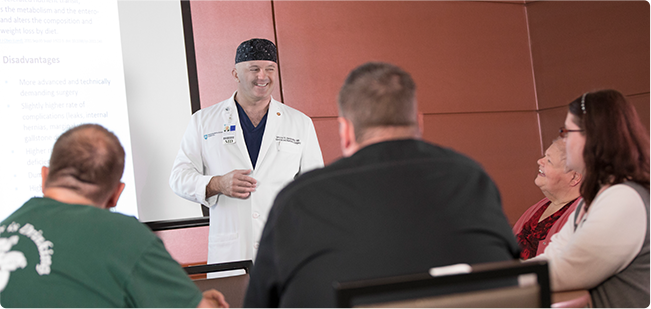Gastric bypass, sleeve gastrectomy, SADI-S and Duodenal switch surgeries
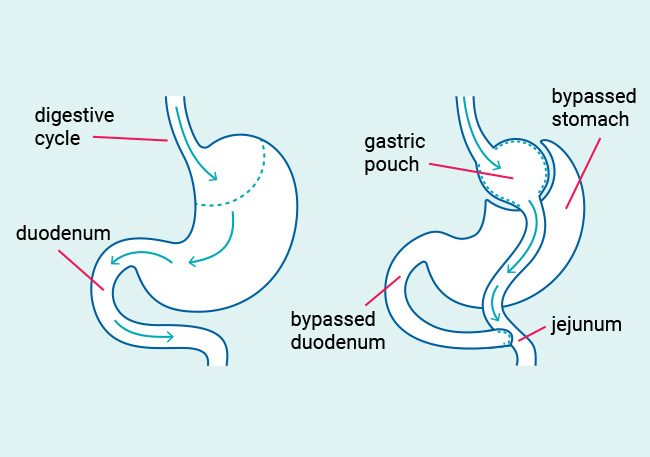
Roux-en-Y Gastric Bypass
A surgical procedure that changes how your stomach and small intestine handle the food you eat. After surgery, your stomach will be smaller. You will feel full with less food. The food you do eat will no longer go into every part of your stomach and small intestine that absorb food. Because of this, your body will not take in all the calories from the food you eat.
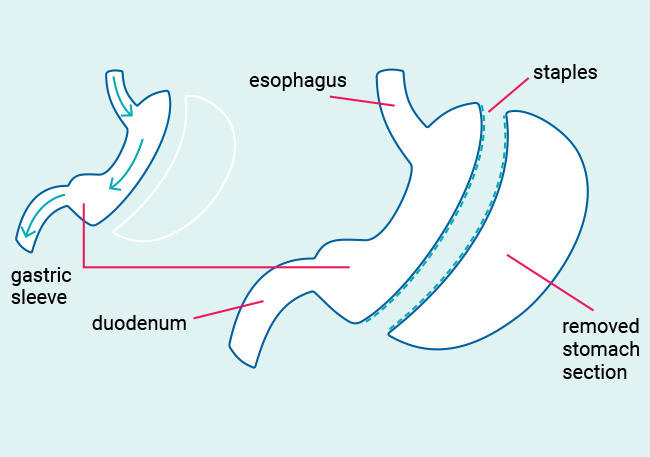
Sleeve Gastrectomy
A surgical procedure to remove a large portion of your stomach. This limits the amount of food you can eat by making you feel full after eating small amounts of food.
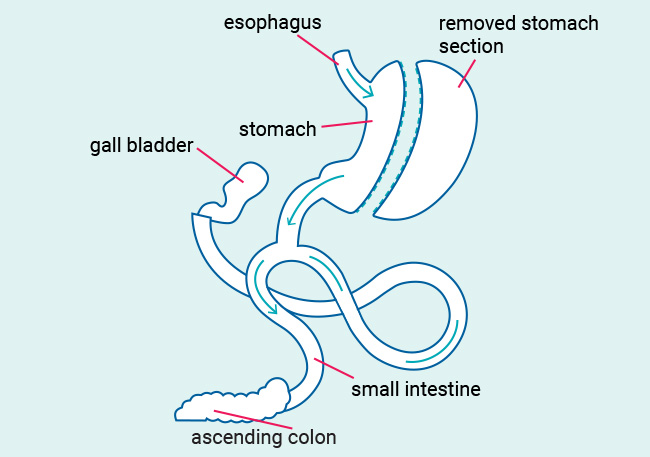
Single Anastomosis Duodeno-Ileal Bypass with Sleeve Gastrectomy (SADI-S)
Performed by removing about 80% of the stomach and changing the way food is digested, bypassing part of the small intestine by creating one surgical connection. This results in reduced hunger, improvement in diabetes, and greater weight loss compared to gastric bypass or sleeve. It has lower risk of diarrhea and nutritional deficiencies compared to the duodenal switch. It is a good option for those with a BMI above 50.
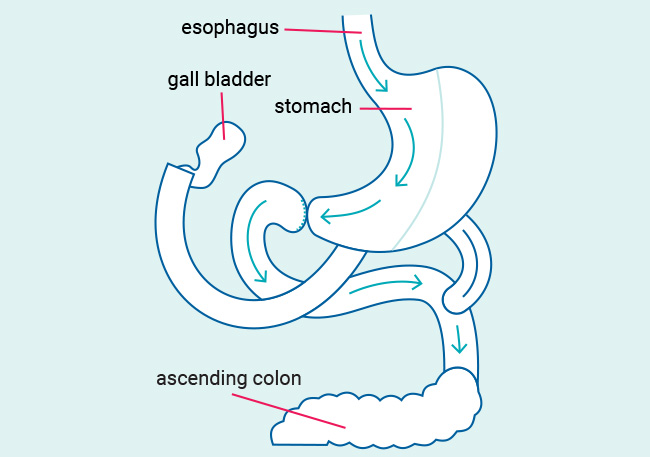
Biliopancreatic Diversion with Duodenal Switch (BPD-DS)
Performed by removing about 80% of the stomach and changing the way food is digested, bypassing most of the small intestine by creating two surgical connections. This results in reduced hunger, improvement of obesity-related conditions, and more rapid and greater weight loss compared to other bariatric surgeries. It has an increased risk for diarrhea and nutritional deficiencies, therefore requires very strict adherence to a high protein diet and lifelong vitamin supplementation. It is reserved for individuals with a higher BMI.
Revision Surgery
After undergoing bariatric surgery, a healthy diet and exercise will always play an important role in managing your weight. But should you ever relapse, or if your sleeve gastrectomy doesn’t prove effective enough and you’d like to proceed with a gastric bypass, we can provide revision surgery to get you back on track.
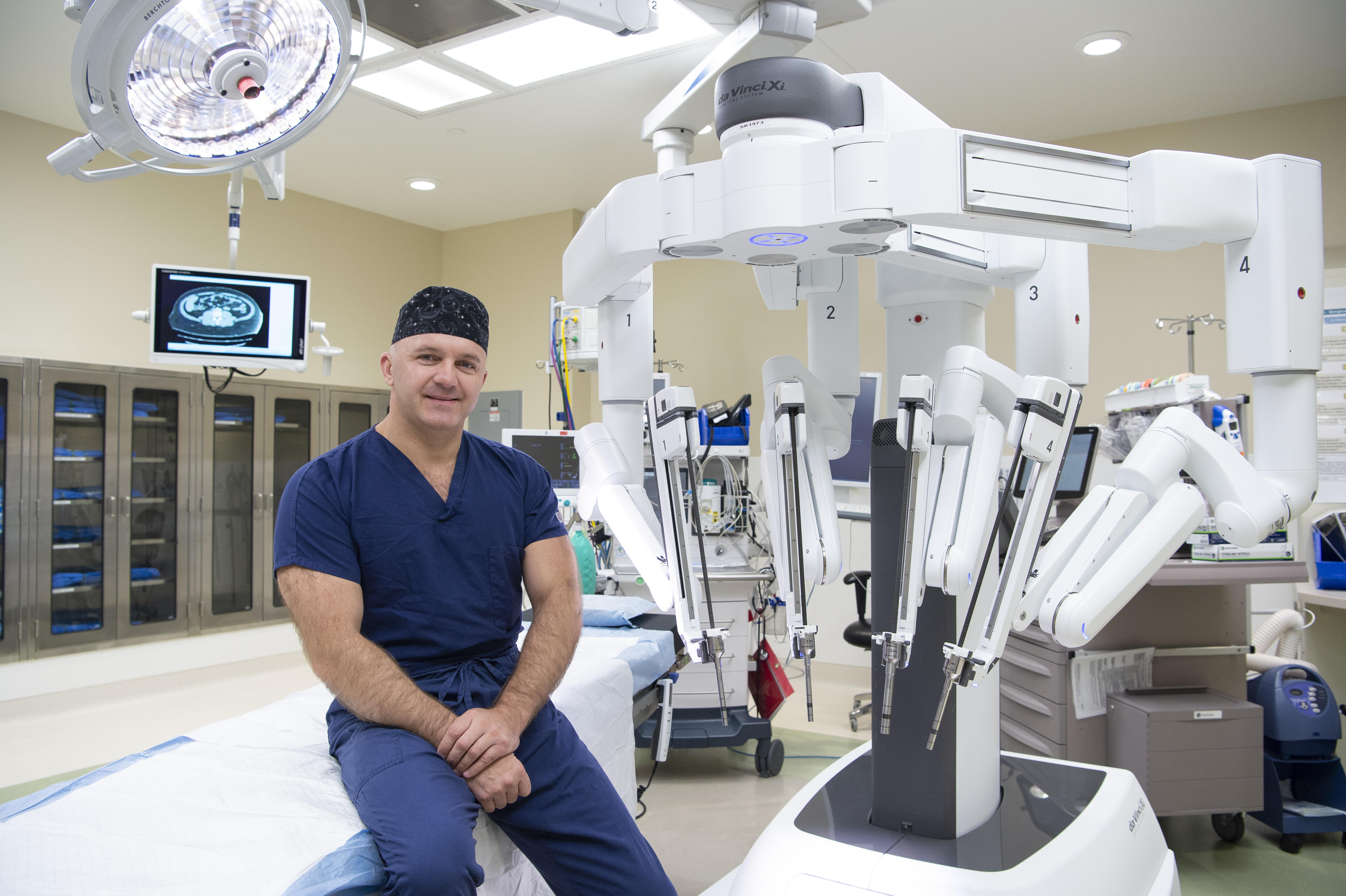
Safe & Effective
Every surgery has its risks. Bariatric surgery, however, is highly effective, reducing excess weight by over 50 percent and often curing obesity-related conditions, like type 2 diabetes and high blood pressure. It’s also safe, with mortality rates as low as 0.1% (less risky than a hip replacement). Our surgeons use robot-assisted technology and minimally invasive, laparoscopic techniques to further reduce the risk of complications. When it comes to bariatric surgery, the benefits far exceed the risks.
Hospital Stay
You can expect to spend 1 night at Wentworth-Douglass Hospital, where you'll be in the hands of our caring, attentive staff. You’ll have time to rest, but also be out of bed at least four times a day. Prior to going home, we’ll ease you into a temporary, post-surgical liquid diet.
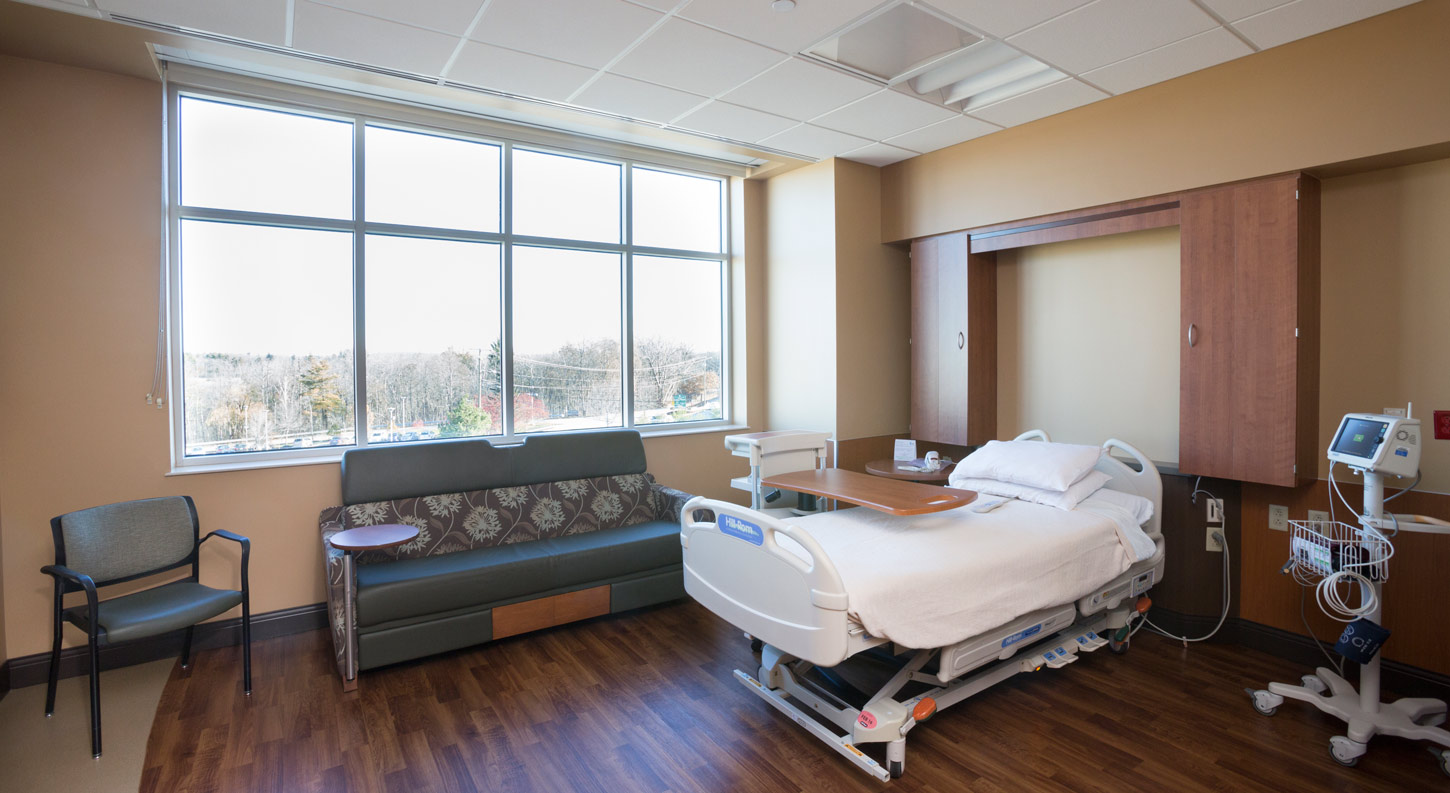
See Michelle D.'s Story
“Now I can rollerblade and ride a bike. I don't need a seatbelt extension on a plane. I went to the Dominican, and I power sailed for the first time. It was on my bucket list for years. I do a lot of activities now. Kayaking. Hiking. I've done four 5Ks! All things I wanted to do or wished I could do, but you know, you're not motivated to do until you lose the weight.”
—Michelle D. from Rochester, NH
